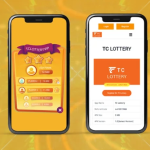Etymologically, the word “lottery” was derived from an Italian word that literally means “fate.” A lottery is purely another form of gambling involving the random drawing of numbers to get a reward; the reward can be in cash or the form of goods. All around the world today, playing Lottery is now a big part of modern life, just like Thomas Jefferson had put it, “far from being immoral, they are indispensable to the existence of man” (1826). In most parts of the world, one significant restriction by the governments to แทงหวยhas always been the prohibition of minors or underaged.
The origin of Lottery
The origin of Lottery can be traced back to ancient Rome in Italy when Emperor Ceasar himself encouraged and supported the lottery games in Rome to help them pay for all the repair works that had to be done in the city. The Roman Emperors also used Lottery to give away valuable properties and slaves.
During King Francis I.’s campaign in Italy, he discovered the lotteries. To finance his kingdom in France, he decided to organize something similar to what he found in Italy. And for the first time, in 1539, a French lottery was held, the Loterie Royale. At this time, the cost of a lottery ticket was very high, and only the rich could afford them. The major roadblock at this time was that the rich that could have afforded them didn’t support it, and as such Lottery was forbidden in the whole of France.
In the United States of America, gambling was illegal in the early days of the 20th century. The legality of Lottery was later restored shortly after that second World War when the government needed to raise revenue to develop the economy. At this time, the total reward the lottery organizer would give out to the winners is always a fixed amount of the entire receipt; for example, the organizers might give the winner 50% of the total money realized. President George Washington was paid for constructing a major road that was a pivotal route to the west when heading from Virginia. President Benjamin Franklin also used the proceeds from the Lottery to pay the American Army and to buy the cannons, which helped the Americans win the American war of independence.
In England, in mid-1960, Queen Elizabeth I organized the first State Lottery to aid the construction of public works. At this Lottery, a total of 400,000 tickets were sold at the selling price of £0.50 per one, and the reward was worth roughly £5,000 and was both in cash and goods. The goods include clothing materials, tapestries, silver plates, and immunity from arrest as long as the crime doesn’t include murder and treason. The proceeds from this Lottery were used to start the construction of The British Museum in London in the year 1753.




